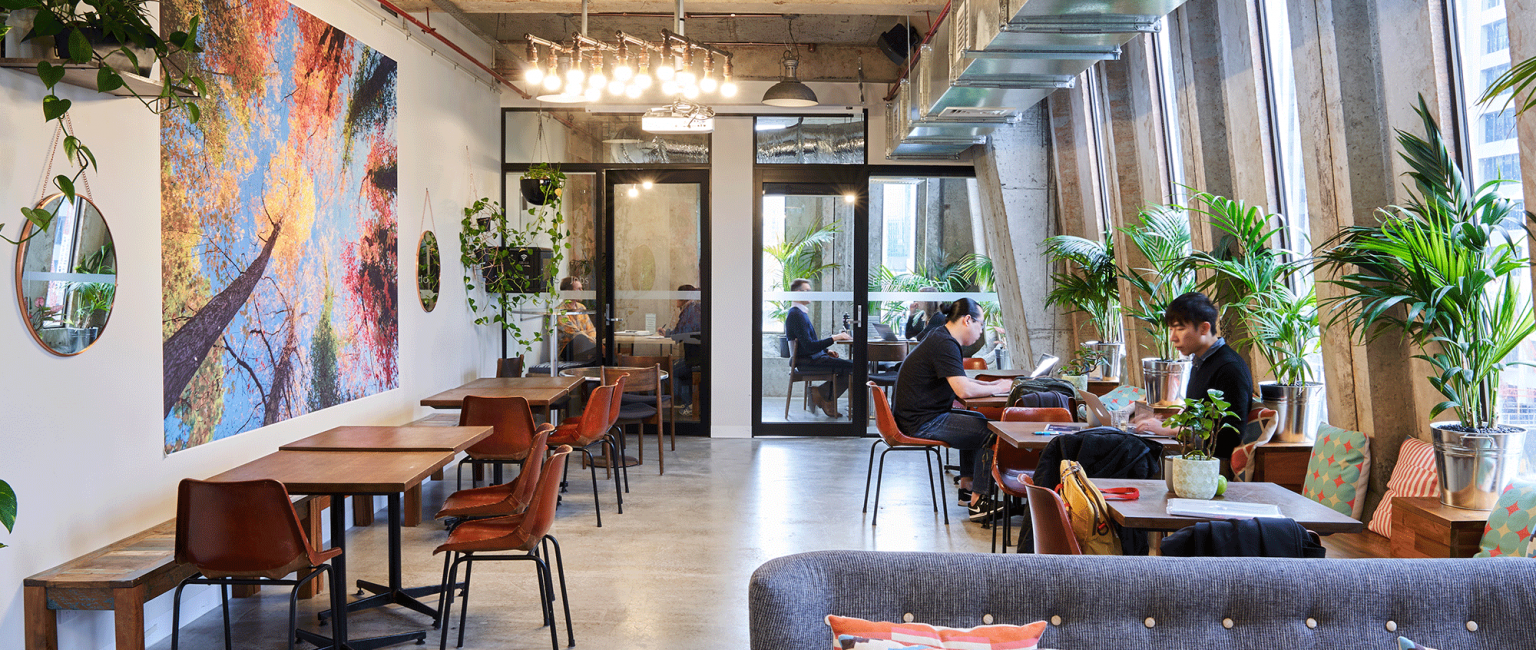4 ways shared office spaces are changing business

Once the bastion of startups and freelancers, co-working spaces across the country are attracting companies with more traditional ways of working.
It’s a phenomenon that’s changing the way businesses work.
Nicole O’Brien, CEO of Fishburners, which has spaces in Sydney, Brisbane and Shanghai, explains the benefits of this emerging symbiotic working model.

Co-working spaces are shaking up traditional offices. Picture: Ross Campbell
1. They offer more flexibility for both employees and employers
So, what’s driving companies to co-working spaces? In short, it’s all about flexibility.
O’Brien explained more and more customers and employees expect to work where and when they choose while enjoying the community that comes with working closely with people from complementary industries.
With no lock-in lease or other contracts, sharing office space also provides the flexibility to scale up or down as business needs dictate while keeping overheads low.
This is especially important for firms wanting to disrupt or get a product or service to market very quickly, O’Brien explained.
Interested in setting up your own co-working space? Here are the four steps to setting up a shared office space.
2. Companies can scale up (or down) quickly
O’Brien said the ability to scale up and down quickly – without being locked in leasing and contracts, and without having to move premises – is becoming a much more accessible benefit, thanks to environments such as Fishburners.
“It’s great to have the diversity in the scale and size of start-ups within the one location, as it means other start-ups get exposed to more established companies and scale-ups that they can learn from,” O’Brien says.
3. They easily allow for the exchange of ideas
Bringing start-ups, entrepreneurs, and corporations of all sizes together in shared office space allows for an open exchange of ideas and experience that just doesn’t exist elsewhere.
On the one hand, established companies are energised by the fast and fluid style of start-ups, while on the other, start-ups and solo businesses can tap into the expertise, experiences and resources that corporations have built up over time.
“Our start-up teams learn so much from the methodologies and practices of others in the space – there is a real multiplier effect,” explained O’Brien.

Co-working spaces with a mix of tenants allow for a free exchange of ideas. Picture: Ross Campbell
4. They offer new ways to collaborate
A further benefit of the co-working microcosm is the opportunity for collaboration and mutual support.
O’Brien sees a lot of cross-pollination of ideas and integration opportunities among the users of Fishburners co-working space, which include the likes of UTS, Google, Optus and the City of Brisbane.
And with that comes individual opportunities for entrepreneurs, freelancers, founders and employees to forge new partnerships, win contracts and grow professionally.







